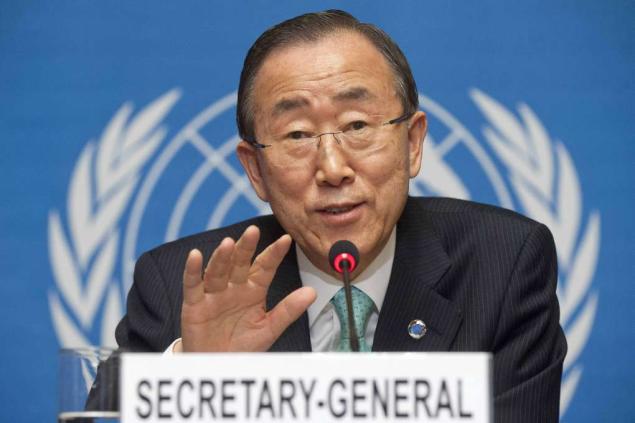The United Nations has requested member states and other stakeholders to invest in the current generation of young people who are at the center of the new Post-2015 Development Agenda.
We now recognize that we need to invest in young people in order to secure our future.
Let us remember that only by partnering with young people can we make the planet more resilient and our future more prosperous, the President of the UN General Assembly, Mr. John Ashe said in a message issued at the UN headquarters, New York on Friday, July 11, 2014 to mark World Population Day.
To help achieve this goal, he said that the UN was committed to creating spaces for young people’s participation and promoting their priorities.
“Half of the world’s population is under the age of 25. This largest generation of young people in history is changing the world. Yet, these young people face disproportionate challenges and are often unable to get a quality education, access health services or find decent work”, Mr. Ashe noted.
Recalling the launching in February of this year, of the Global Partnership on Youth in the Post-2015 Development Agenda, the President of the Assembly was happy with the enthusiastic response from the representatives of more than a thousand youth organizations from more than 140 countries.
He said that they have joined the partnership, and through a crowdsourcing initiative they put forward a Global Youth Call which proposes concrete targets focused on education, employment and entrepreneurship, health, good governance, and peace and stability, with a cross-cutting emphasis on gender equality and human rights.
The Global Youth Call endorsed by young people and Member States, he explained underlined an unprecedented consensus on how young people’s priorities should be reflected in the Post-2015 Development Agenda.
In his message, the Secretary General, Mr. Ban Ki-Moon said the Day is an occasion to stress the empowering effect of gender equality, and the fact that respect for this human right benefits everyone — men, women, boys and girls alike.
He therefore called for a resolve to empower women and girls in line with the commitment to gender equality. “And let us remember that every society that wishes to overcome poverty, hunger, armed conflict and disease must draw fully on the talents and contribution of all of its members”, the Secretary General stated.
By contrast, when discrimination prevents true equality, the consequences are grave he noted, explaining that “Millions of girls are “missing” from populations because parents preferred the birth of sons. More girls than boys are out of school, denied their right to an education and the keys to a better life, and impoverishing the communities in which they live.
“Poverty, gender discrimination and violence are fueling the AIDS epidemic, with the number of women and adolescent girls newly infected rising in every region. And in some regions, alarmingly high levels of maternal mortality are claiming the lives of too many women and depriving children of their mothers’ love and care”, he added.
Current UN statistics show that there are1.8 billion young people around the world – the largest generation of youth in history.
Source: ISD (R. Harry Reynolds, Ghana Mission, New York)
























